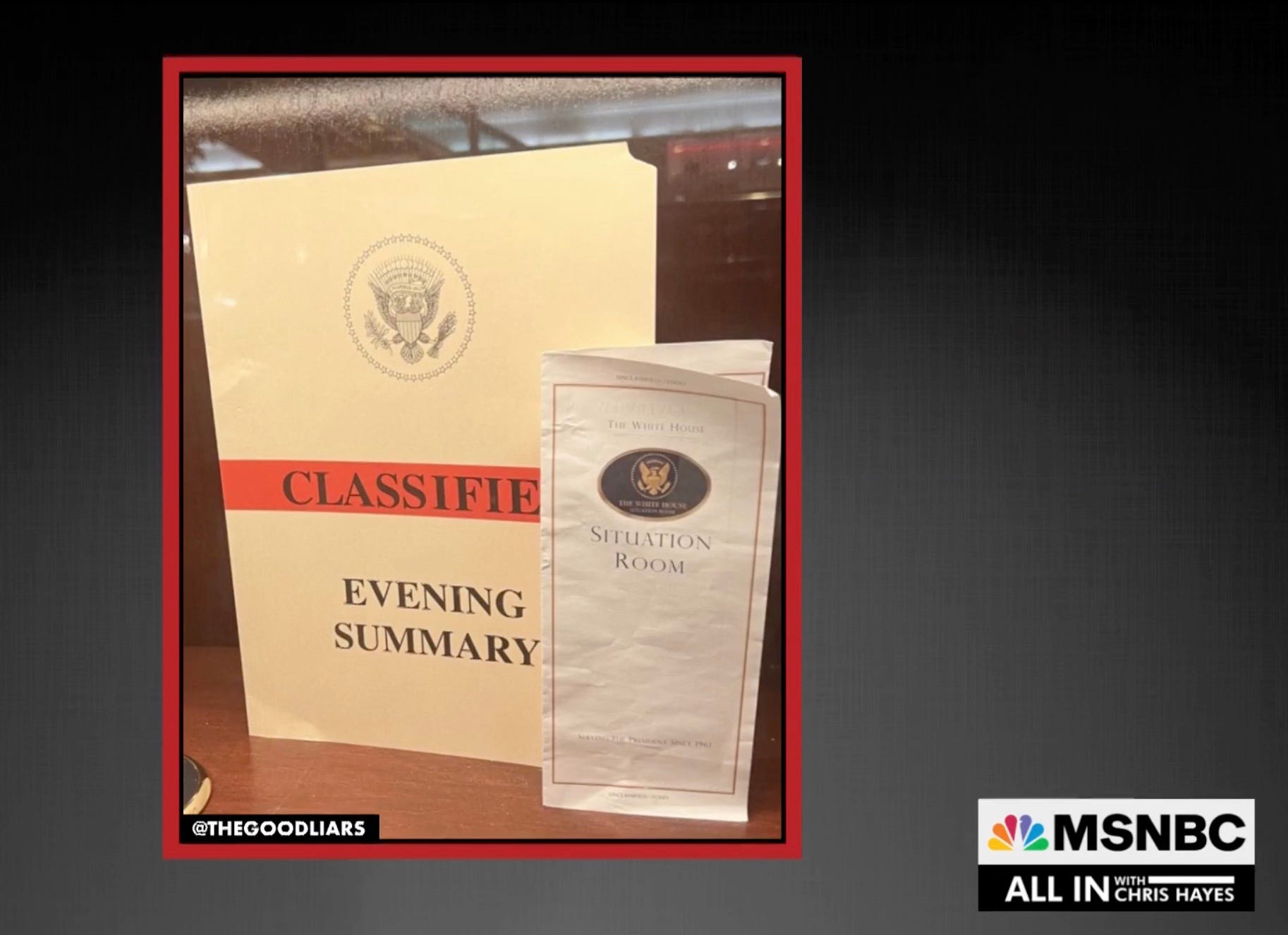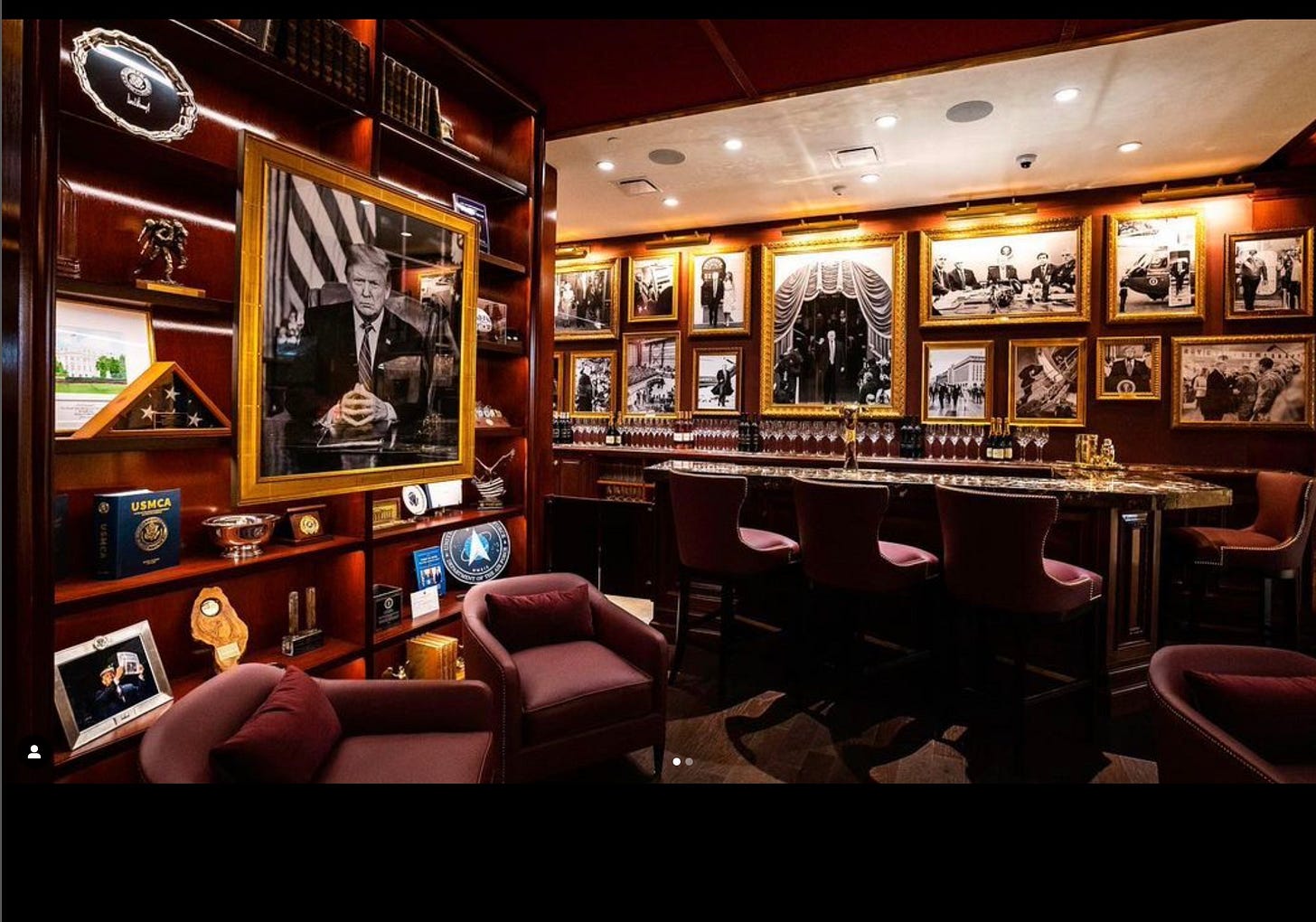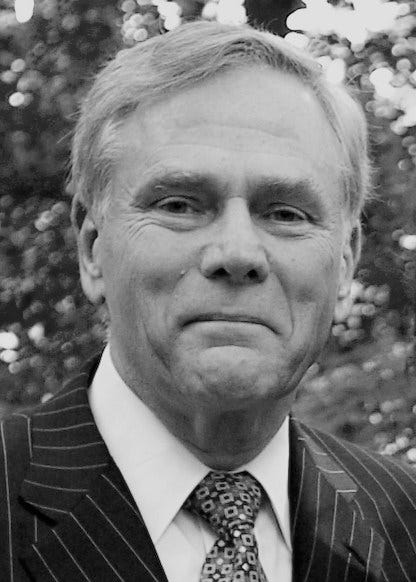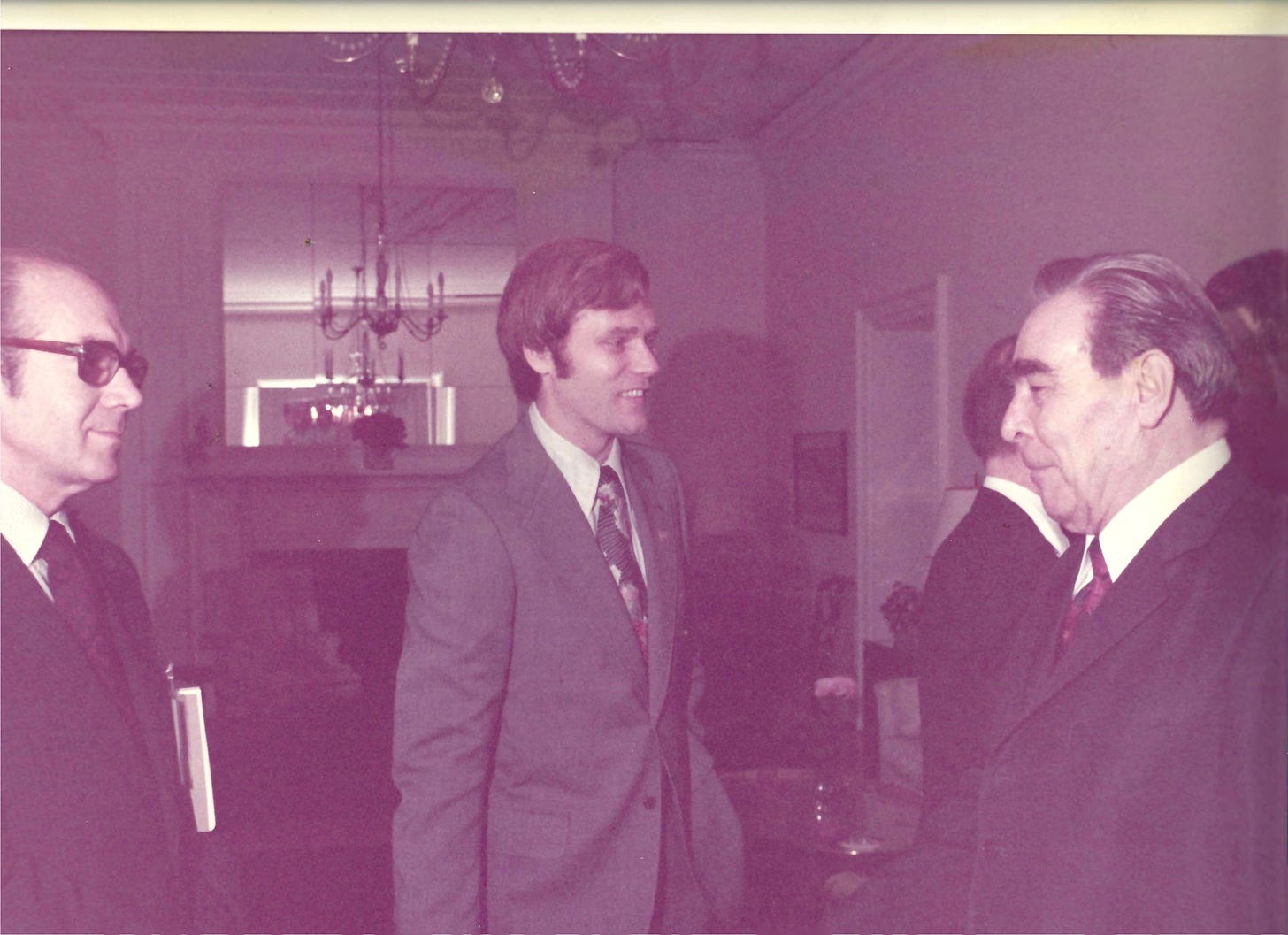Convicting Trump: The Al Capone Solution
A noted intelligence expert explains the best way to prosecute the Orange Menace is to use a single, obscure subsection of the Espionage Act - like the feds getting Al Capone for income tax evasion

For more than 50 years, Jan Lodal has been an important player in Washington on national security issues. He served as one of Defense Secretary Robert McNamara’s “Whiz Kids” in the 1960s in the Pentagon, where he was responsible for the calculations of nuclear war outcomes. He then worked closely with National Security Adviser Henry Kissinger on arms control issues, a position that brought him so inside the process that Soviet Premier Leonid Brezhnev gave him a nickname. (see below)
During the Clinton Administration, Lodal was Under Secretary of Defense and one of only five members of the “Special Access Programs Oversight Committee,” a little-known Pentagon unit that has access to the nation’s most carefully-guarded secrets. He went on to head the Atlantic Council, an important foreign policy think tank, where in 2015 he led a small group of experts that convinced Vice President Joe Biden that the Obama Administration should send Javelin anti-tank missiles to Ukraine. Worried about destabilizing U.S.-Russian relations, President Obama declined to do so, but Biden was primed to move aggressively after this year’s invasion of Ukraine.
Jan’s recent guest post on James Fallows’ newsletter “Breaking the News,” offers a quick and elegant way to convict Trump in the Mar-a-Lago case and I wanted to discuss it with him. While the fake elector scheme, the infamous Georgia phone call and other cases might ultimately prove fruitful, I’m focusing on this one this week.
JONATHAN ALTER:
Hi, Jan. Thanks for doing this.
Before we talk about nailing Trump, I wanted to ask you about some of your experiences in government. When you worked for Henry Kissinger, did you find him at all lacking in the integrity department?
JAN LODAL:
I was working with him on arms control and there wasn't anything that came close to lack of integrity. He has a very deep respect for the risk of nuclear weapons and the risk of nuclear war for mankind, and that was just totally evident.
I was his top technical guy and sometimes I would have to step in when he was talking to [Soviet Premier Leonid] Brezhnev or [Soviet Foreign Minister Andrei] Gromyko. Henry didn't know how to calculate the volume of a cylinder right and it caused a big problem with SALT I and [Senator Henry M.] Jackson [ a critic of arms control agreements]. Later we're in this long session with just the two of us on our side and Gromyko has put this proposal on the table to try to sort of lock-in Henry's stupid mistake. Henry kept trying to explain it and kept getting it wrong because he didn't know how to calculate it right and he kept turning to me and wanting me to say that it would be okay. And I kept saying, “No, it’s not right.” This went on for 45 minutes or so until finally I got Henry to understand enough geometry and what was wrong with what he was trying to do. [Soviet Ambassador Anatoly] Dobrynin had been a senior aeronautical engineer and he ultimately explained it to Gromyko in Russian and that was the end of that issue. I tell that story to illustrate how intent Henry was on understanding the technical details.
JON:
Were you with Nixon and Kissinger when they went to Moscow in 1974 not long before Nixon resigned?
JAN LODAL:
Yes. I went several times to Moscow. Unlike Nixon, Brezhnev loved banter and joking around. The first time we met, I had just been at the NSC for a few weeks. I literally had no idea what was going on except that somebody sent me into a room [at the Kremlin] with some Russian guys and I'm greeted by Leonid Brezhnev who blasts out of his chair to come over and talk. I had kind of ruffled hair then and he had just had a visit from the actor Chuck Connors [whom he loved from Westerns]. He told me I looked like him and until he died, every time he would see me he would chuckle and say, “Chuck.”
JON:
What did you do with classified documents on those trips?
JAN LODAL:
I had them in a big lawyers’ briefcase and they were practically attached to my hand with a chain.
JON:
But how about when you left the hotel to eat?
JAN LODAL:
I didn’t stay in a hotel. I stayed inside the Kremlin and there was no time to eat.
JON:
Pat Moynihan thought there was much too much classification and secrecy and that many things had no reason to be classified. Do you agree?
JAN LODAL:
I don't consider that I have a terribly well-formed response to this argument. Moynihan was brilliant and it’s true that almost everything in government is written down, almost everything is passed around, and most of those documents aren’t terribly important in relation to the big picture and to major, crucial things. So a lot of classification — which really only dates to when we were building the Bomb — is really a privacy mark more than anything else. Most of it is not very secret — certainly not “Top Secret.” It's kind of secret, but even that's not very secret. A lot of stuff that's classified higher, could well be classified as “Confidential.” It’s not going to cause great trouble when it gets seen.
JON:
Do you think the Espionage Act of 1917, which was used to put one of Woodrow Wilson’s rivals for the presidency, Eugene Debs, in jail, and was used — unsuccessfully — against Daniel Ellsberg in the Pentagon Papers case, among other misuses, is a good law?
JAN LODAL:
Not very good. It leaves the bureaucrats too much authority to restrict all kinds of stuff that doesn't really need to be restricted in that way. Now, part of the problem is that you don't have any alternative.
JON:
You’ve been analyzing Section 1 of the Espionage Act, which the DOJ cited in its search warrant and other filings. It’s your judgment that the first three elements of proof required to convict — sub-sections (a),( b), and (c) — are just not relevant in the Trump case, right? Because finding a jury to convict him of being a traitor or spy–based on what we know now — is not going to happen. Sure, new evidence of him selling documents could emerge but DOJ has nothing like that so far.
JAN LODAL:
Exactly. The first three elements make it almost impossible because you have to prove that [defendants] had “intent or reason to believe” that the information that was mishandled is to be used to the injury of the United States or to the advantage of any foreign nation. Well, Trump didn't have the intention to have this stuff used to the injury of the United States, nor did he have reason to believe that it will be used to the advantage of some foreign nation. He just thought it was going to be used for his own advantage.
“Well, Trump didn't have the intention to have this stuff used to the injury of the United States, nor did he have reason to believe that it will be used to the advantage of some foreign nation. He just thought it was going to be used for his own advantage. “
JON:
On that point, I have a theory on what he was thinking — what his intention was — that comes from learning from Chris Hayes’ MSNBC show about Trump’s new Hard Rock Cafe-style restaurant in Trump Tower, which is called “45 Wine and Whiskey Bar.” On the walls, he has Trump flags, MAGA caps, and the other usual Trump memorabilia. But he also has one display case containing an authentic folder that says “Top Secret” on it. [Hayes showed a photo of it]. I think that's why he wanted those 48 empty folders marked classified — as decor for the chain of restaurants that he planned to open in different places.

In any event, why is the fourth element — subsection (d) — different and extremely perilous for Trump?
JAN LODAL:
The reason that (d) works is that it doesn't have any of that stuff about what was in his head. What did he believe? What was his intention? It's the only sub paragraph that doesn't have that.
It just specifies a simple act, which [makes it a serious crime] if you're legitimately asked by a government official to give classified documents back, and you don’t. Seven times he was asked, legitimately, by three different entities — the National Archives, the Department of Justice, and the court — to give the documents back and he didn't do it. There are no “soft elements” in sub-section (d) where you have to prove he had reason to believe there was a hostile intent or even that he acted with “gross negligence” — a standard in subsection (e). In the sections other than (d) — all of which require intentionality — the defense will say, “No, that's not true.” Then they'll hold out and delay and fight over Trump’s state of mind and handling of the documents. The only thing this (d) paragraph requires is for the government to show it didn’t get the documents back.
“The reason that (d) works is that it doesn't have any of that stuff about what was in his head. What did he believe? What was his intention? It's the only sub paragraph that doesn't have that. “
JON:
And Trump can’t easily argue that he thought all the documents had been returned because, crucially, they were not just in a storage area but commingled in his office with stuff like his passport and TIME covers, and there were so many boxes he refused to return on so many occasions.
All right. So this is a sub-section (d) case. But can they mount a whole prosecution based on just this one part of the statute? Are you aware of other prosecutions in these kinds of cases where they just do it based on subsection (d)--where the government argues to a jury, “Look, the law is the law. It's here in black and white. He did not return the documents even after he was asked seven times. It's a black letter violation of the law.” Can they say that in court? Can they make that argument?
JAN LODAL:
They argue that all the time. That's why these sections are here.
JON:
OK, but it might be harder with a president, right? I know a judge unconnected to any of this who says in practice the DOJ needs a “holy shit” moment for the jury, where the jurors go, “This isn’t a letter to the North Korean dictator or something else over-classified but serious stuff related to nuclear weapons.” So do you think that the government should say, “Hey, we can't go into any details. The jury does not have security clearance. But we will ask the judge or have some special process validate that one of these documents was indeed about the nuclear capabilities of another country”? The Washington Post reliably reported that this was the case. That would be very impactful with the jury if admitted. Should they do that?
JAN LODAL:
The government shouldn't do all that. Time is not on our side. Trump’s whole strategy is delay — to just throw up roadblocks and let the clock run out, and then maybe he'll get reelected or maybe the public will get tired of it and just give up. Furthermore, the Espionage Act is from 1917, long before nuclear weapons. Anything having to do with nuclear stuff automatically involves the Atomic Energy Act of 1946 and other statutes. That opens the door to the very complex task of clearing the defense to see the documents, and likely a special time-consuming process for reviewing them. Going down this road requires bringing a prosecution under this entirely different set of laws. There have only been three or four convictions in the history of the nation under those laws [e.g. the case of Julius and Ethel Rosenberg, nuclear spies who were executed]. I know it sounds bizarre and people don't realize it but any nuclear stuff — and all the espionage related to it — is separate from the law that DOJ is using in this case.
The reason that I think (d) is the way to go is that you don't have to have all of these other things and what you need is patently clear. You could go put him in jail tomorrow for having done it.
JON:
But isn’t getting reference to these nuclear documents admitted into evidence a very important thing to have to win the case? To show this is a really serious crime?
JAN LODAL:
I don't agree with that. Any felony conviction of a former president will be staggering.
JON:
OK, maybe that's enough. They got Al Capone on income tax evasion, right?
JAN LODAL:
Right! This is the way to get it through our very complex legal system.
JON:
Thanks, Jan.







I just about fell over when I read the first question re Henry Kissinger and integrity. Great timing Jon, let us know when you're playing at Zanie's!
This is a valuable and insightful article. However, I still think we can show that Trump knew he was helping a foreign government in derogation of the interests of the United States. In short, he was and is a traitor.
The article said that it would be hard to prove what was in Trump's head. However, to convict anyone of any crime one has to prove criminal intent, or what is known as "mens rea." People are adjudged to have criminal intent even though there are of course no mind-reading machines at the disposal of the DA.
How is this done ? A very basic legal principle gives us the answer: If one commits a criminal act, we infer and assume that one wanted to commit a criminal act and the burden shifts to the Defendant to prove that he was without criminal intent.
How can we show that Trump wanted to enhance and aid Russia in derogation of the interests of the United States ? Read on.
For almost two decades, American banks were leery of lending to Trump because of his propensity to have his corporations declare bankruptcy and evade their debts. The New York Times explained that because of this Trump got a lot of money from Russia that was laundered through Deutschebank.
Did Russia give him this money just for the hell of it. Or course not. Trump has consistently aided Russia.
In 2019, he told Ukraine that it could not get American arms, to enable itself to defend itself from Russia, unless it smeared Hunter Biden. This was proven by phone conversations in which Trump's agents explicitly demanded dirt on Hunter Biden and said that no dirt meant no arms.
US policy favored the curtailing of Russian power and the boosting of Ukraine. Trump was working for the exact opposite. Trump is the textbook definition of a traitor.
In the first joint press conference, between Putin and Trump, after Trump ascended to power, Trump said that he did not believe American intelligence services which said that Russia interfered in the 2016 election and said that he believed Russia.
Although the Mueller report, in its conclusion, said that there was no finding that Trump and Russia colluded to shape the 2016 election, the Mueller report's recitation of the facts tells a different story:
The Muller report says that Trump gave the Russians confidential polling data from Midwestern battle ground states. The polling data showed that black support for Hillary Clinton was equivocal and irresolute. The Russians then put ads on facebook, which appeared to have been posted by African Americans, which skewered Hillary.
Of course when Trump absconded with top secret documents, he may or may not have been doing it to benefit Russia. But we should look at the "gestalt" (the whole is greater than the sum of its parts) of the situation. Trump has consistently worked for Russia. When he seized top secret documents, and when he refused to return them, he was not doing it for his own amusement. He was working for Russia.